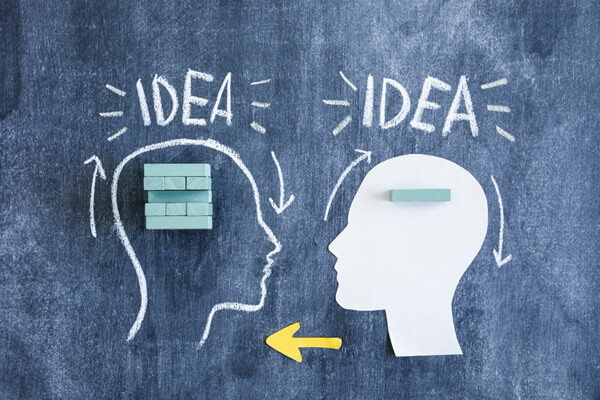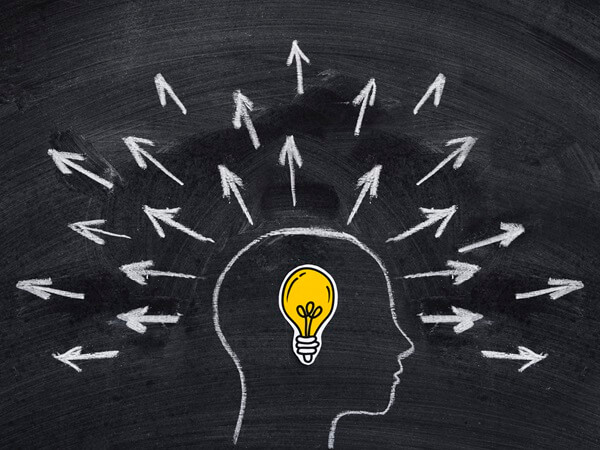Developing Critical Thinking Through Literature

Imagine being able to dissect complex problems with ease, both at work and in your personal life. That’s the power of critical thinking. Literature, with its intricate stories and multifaceted characters, can help you develop this invaluable skill. This article delves into how literature can be a powerful tool in developing critical thinking, setting the stage for a deeper exploration of this fascinating relationship.
Sharpening Analytical Skills
Ever found yourself lost in a novel, only to emerge with a new perspective on the world? That’s because literature, like George Orwell’s “1984,” challenges you to think critically about themes like surveillance and totalitarianism. Analyzing such themes requires you to question the world around you, sharpening your analytical skills in the process.
Literary analysis isn’t just about understanding the story; it’s about questioning the motives of characters and the implications of their actions. This kind of deep thinking translates well into real-life scenarios where you need to evaluate situations and make informed decisions. The more you practice this skill through literature, the more adept you become at analyzing real-world problems.
Moreover, literature often presents multiple perspectives within a single narrative, forcing you to consider different viewpoints. This not only enhances your analytical skills but also prepares you for the complexities of real-life decision-making. In essence, literature serves as a training ground for your analytical mind.
Broadening Horizons
Have you ever felt like you’ve traveled the world through the pages of a book? Literature, such as Chinua Achebe’s “Things Fall Apart,” immerses you in different cultures and perspectives, challenging your own viewpoints. This exposure fosters empathy and open-mindedness, crucial traits in today’s globalized society.
Reading such works broadens your understanding of the world, making you more empathetic and open to different viewpoints. This is crucial in today’s globalized society, where understanding diverse perspectives can lead to more harmonious interactions. Literature serves as a window to the world, allowing you to step into the shoes of others and see life from their vantage point.
Furthermore, engaging with diverse narratives helps you question your own beliefs and assumptions. It encourages you to think critically about societal norms and values, fostering a more inclusive mindset. By exposing yourself to a variety of perspectives, you become more adept at navigating the complexities of the modern world.
Also read: What Techniques Are Effective for Handling Errors in Swift?
Navigating Complex Narratives
Think about the last time you solved a tricky puzzle. Engaging with complex narratives in literature, like Agatha Christie’s “Murder on the Orient Express,” offers a similar mental workout, enhancing your problem-solving skills. Solving the puzzle requires you to pay attention to details, think logically, and piece together clues.
Similarly, Arthur Miller’s “The Crucible” presents a web of conflicts and moral dilemmas. Navigating these complexities requires you to weigh different factors and consider various outcomes. This mirrors the kind of critical thinking needed in real-life situations, where problems are rarely straightforward and often require nuanced solutions.
By immersing yourself in complex narratives, you train your brain to handle intricate problems more effectively. Literature provides a safe space to practice these skills, allowing you to experiment with different approaches and learn from the outcomes. Over time, this practice translates into improved problem-solving abilities in your everyday life.

Integrating Literature and Critical Thinking
Language & Literature SL is a prime example of how literature can foster critical thinking. This program pushes students to delve deep into texts, encouraging comparative analysis and thematic exploration. By examining different works side by side, students learn to identify underlying themes and draw connections between them.
The curriculum encourages students to question and critique, fostering a mindset of inquiry. This approach not only enhances their understanding of literature but also develops their critical thinking skills. By engaging with a variety of texts, students learn to appreciate the nuances of language and the power of storytelling.
Moreover, the program emphasizes the importance of context, encouraging students to consider the historical and cultural background of each work. This holistic approach ensures that students develop a well-rounded understanding of literature and its impact on society. In essence, Language & Literature SL serves as a model for how literature can be used to cultivate critical thinking.
Other Literature Programs
Other programs also highlight the role of literature in developing critical thinking. The International Baccalaureate (IB) Literature program, for example, exposes students to a diverse array of texts, broadening their perspectives and enhancing their analytical skills. This exposure helps students develop a global perspective and enhances their critical thinking skills.
Similarly, the Advanced Placement (AP) English Literature course challenges students to analyze complex texts and articulate their insights through essays and discussions. This rigorous approach ensures that students develop strong analytical and critical thinking skills, preparing them for higher education and beyond.
These programs share a common goal: to use literature as a tool for developing critical thinking. By engaging with diverse texts and challenging students to think deeply, they help cultivate a generation of critical thinkers. This emphasis on literature and critical thinking is crucial in today’s rapidly changing world.
Practical Exercises for Critical Thinking
Want to boost your critical thinking skills? Try practical exercises like book discussions. These conversations encourage you to articulate your thoughts, listen to others, and consider different viewpoints. This collaborative approach fosters critical thinking and deepens your understanding of the text.
Another useful exercise is writing analytical essays. By dissecting a text and presenting your analysis, you practice organizing your thoughts and constructing logical arguments. This process not only enhances your understanding of the text but also improves your critical thinking skills.
Creative writing prompts can also be beneficial. By crafting your own stories, you engage in a form of problem-solving that requires you to think critically about plot, character development, and themes. This creative process helps you develop a deeper appreciation for literature and enhances your critical thinking abilities.
Cognitive Benefits of Literature
Did you know that reading can make you smarter? Research shows that engaging with literature improves brain connectivity, enhances vocabulary, and boosts empathy. These cognitive benefits contribute to improved critical thinking skills and overall mental agility.
One study found that reading literary fiction, in particular, enhances the ability to understand and empathize with others. This is because literary fiction often delves into the complexities of human emotions and relationships, encouraging readers to think deeply about the characters and their motivations.
Moreover, engaging with literature has been shown to reduce stress and improve mental well-being. This is because reading provides a form of escapism, allowing you to immerse yourself in different worlds and take a break from the stresses of everyday life. This mental relaxation can enhance your overall cognitive function and improve your critical thinking skills.
Real-Life Applications
Imagine applying your literary analysis skills to real-life situations. In the workplace, the ability to analyze information, evaluate evidence, and make reasoned judgments is invaluable. These skills can help you navigate complex projects, make informed decisions, and solve problems effectively.
In your personal life, critical thinking can help you make better decisions and navigate relationships more effectively. By considering different perspectives and evaluating evidence, you can make more informed choices and avoid common pitfalls. This can lead to more fulfilling and harmonious relationships.
Civic engagement is another area where critical thinking skills are crucial. By analyzing information, evaluating evidence, and making reasoned judgments, you can become a more informed and active citizen. This can help you contribute to your community and make a positive impact on society.
Embracing Literature for Lifelong Growth
To sum it up, literature is a fantastic way to develop critical thinking skills. By diving into complex stories and diverse perspectives, you can sharpen your analytical abilities, broaden your horizons, and become a better problem-solver. Programs like Language & Literature SL exemplify how literature can be used to cultivate critical thinking.
As you continue to explore literature, you’ll find that it offers endless opportunities for personal and intellectual growth. Whether you’re reading for pleasure or engaging in structured literary analysis, the benefits are clear. So, pick up a book, dive into a new world, and start your journey toward becoming a more critical thinker. Share your favorite books or experiences with literature in the comments below, and let’s continue this conversation.

